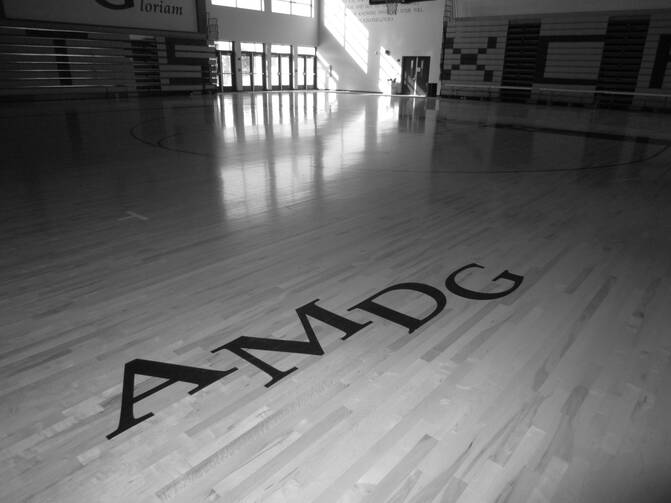In September of 2009, I left the practice of law to teach at a small, almost brand new Jesuit high school in Palm Desert, CA.
That is the simple way I might describe it now, but at the time, it was a career crisis. I had trained to be a lawyer; I loved law school and planned to be at the firm for many years. What, I wondered, was going on? I was a young professional making good money in a big city. I had arrived at what was supposed to be the American dream. Why wasn't I content?
I didn't know exactly what was happening, but in the spring and summer of 2009, I felt increasingly called, to the point of urgency, to leave the practice of law and return to Catholic education. So I did.
The shape of that journey and the conversion that followed are part of a much longer story for a different time. But that experience is decisive for how I got to this space, writing about Ignatian education. You could say it was my "cannonball moment."
Coming to Xavier College Preparatory threw me into the swirl of the great questions in ways I had never encountered. In the dialogue with students, in response to their uncompromising inquiries, I realized that high school theology was dynamic and exciting, a terrain of insights waiting to be tilled. My students had just arrived at the point in life where humans start to think seriously and deeply about matters like identity, meaning, relationships, faith, and good and evil. I will never forget when, early on, one of my students asked, "Why would a loving God create humans knowing that some of them would reject Him and suffer eternal punishment? Why would a loving God do that in the first place? Why would He want to do that?" I don't remember exactly what I said in response, but I do remember thinking that there was nowhere else on the planet I wanted to be than right there, in that room, discussing those questions. At that moment, I felt the clarity of the call.
As those conversations multiplied, I saw that my understanding of "teacher" had to evolve. I couldn't just present the material or give the lecture and trust that it would absorb. I first had to understand my students' context, their lives, their influences. I had to learn about Facebook and Twitter (I was one of the last holdouts), about obscure musicians, and about the allure of YouTube and the endless reach of the Internet.
As I worked through these topics in my head, I began to develop an interest in the intersection of faith, education and culture. I began to explore those topics in relation to the subjects I taught and within the broader landscape of Catholic education. I started to write, and over the past few years, have contributed articles for various publications, including America (see here and here), Commonweal, First Things and Patheos.com. This past February, desiring a more regular forum to contemplate faith, education and culture, I started a blog devoted to Ignatian education and called it "The Ignatian Educator," which now, of course, has migrated here. To get a sense of the subjects I've explored, you can access my old posts here. Here are a few of my favorites:
When the Rock Splits to Pieces: What we Learn from St. Peter
Living What We Teach: Authenticity and the Catholic Educator
A few words about my academic pedigree. I am the product of 19 years of Catholic education, including eight years at Jesuit institutions, first at Brophy College Preparatory in Phoenix, Ariz., then Saint Louis University, where I graduated with a degree in philosophy in 2004. A year after graduating from SLU, I went off to Notre Dame Law School, where, in addition to my legal studies, I studied moral theology and healthcare ethics. Catholic education, at various levels and in various ways, has been with me my whole life, and I think and write with tremendous gratitude for the wisdom and direction given to me by dozens of teachers and professors who modeled the best of Catholic education.
At Xavier, I now teach theology and direct admissions and advancement. It is a tremendous privilege to be able to write for America and bring "The Ignatian Educator" to a publication that I have long read and learned from. I look forward to great discussions, honest feedback and any suggestions you might have for future posts. Feel free to email me at mattemerson@outlook.com.
I leave you with one of my favorite Ignatian prayers, which our students and faculty say together every Monday after Mass.
Prayer for Generosity
Lord, teach me to be generous.
Teach me to serve you as you deserve;
to give and not to count the cost,
to fight and not to heed the wounds,
to toil and not to seek for rest,
to labor and not to ask for reward,
save that of knowing that I do your will.
-St. Ignatius of Loyola








